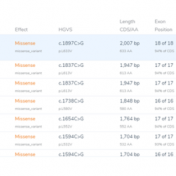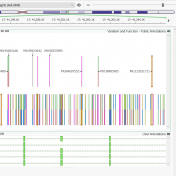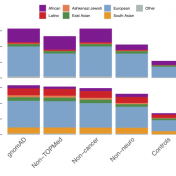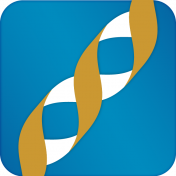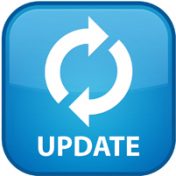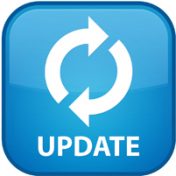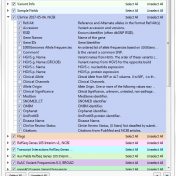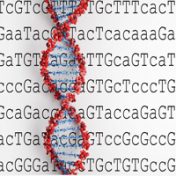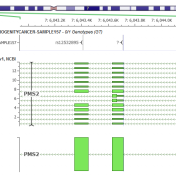Our upcoming release of VarSeq is one of the largest we’ve ever had with our software! It comes with an extensive list of polishes and new features like our recently mentioned ACMG CNV classifier and a redesigned reporting interface with updated templates. Additionally, this new release is also paired with some major upgrades to our list of new and supported… Read more »
Our team is regularly updating and curating annotations, most recently the BRCA Exchange. Breast cancer is known to occur in approximately 10% of the female population and if there is a damaging mutation in the breast cancer gene (BRCA), that rate increases to 65%. Although genetic testing can identify mutations in BRCA, a tumor suppressor gene, it has been difficult… Read more »
If you have watched this blog over time, it would be no surprise that Golden Helix invests a lot in curating genomic annotations for use with our clinical and research analysis products. Often, we spend considerable time on the attention to detail necessary to ensure the best experience for any data source by cleaning, normalizing, documenting and then distributing it through our data annotation server. Many annotations… Read more »
Golden Helix works to keep incorporating and updating great somatic annotation catalogs for our VSClinical users. We currently have the updated version of one of the largest cancer databases from the International Cancer Genome Consortium, or ICGC. Version 28 has been improved by integrating ClinVar and CIViC clinical annotations, and as always, increasing the number of mutations listed. The current… Read more »
The Broad Institute team led by Dan MacArthur announced the release of gnomAD version 2.1 at last year’s ASHG conference. This new version boasted data from 125,748 exomes and 15,708 genomes, but the greater updates were the improved QC refinement and more discrete sub-population break downs. Although the majority of samples were counted in the previous 2.0.2 release, the additional… Read more »
Smoothing Hurdles into Speed Bumps when creating Annotation Sources Although most researchers assume that getting the pile of VCF sequence files is the largest hurdle in moving towards an analysis, there still exists the looming step of normalizing the variant calls in annotation sources to make variant comparison easier. In this ever-refining field of study, VarSeq continually works to increase… Read more »
Check out some information on the upcoming release of new genome maps and annotation tracks for a few animal species.
ClinVar is the NCBI variant database that focuses on the categorizing of variant alleles and their interpretation from a clinical standpoint. This has made it a great resource, especially for those seeking variant allele disease correlations and pathogenicity. And this all worked fairly well, but it was changed… Previously, the ClinVar variant track annotation took some time to curate due… Read more »
Golden Helix is excited to announce a new round of novel and updated annotations; including a frequency track, a region track, and a gene track. All three of these tracks were created with the use of VarSeq and its Convert Wizard functionality. First, the expansive 1000 genomes track (1kG) has been updated to include sub-population allele frequencies and heterozygous and… Read more »
With the recent upgrade to VarSeq 1.4.7, users gain access to some new great features. Among the additions are new CNV annotations (Figure 1). In this final chapter of the annotation blog series, we are going to provide descriptions of the new CNV annotations and how they can be used. The types of CNV annotations vary and include frequency, clinical… Read more »
In our final chapter of this variant annotation blog series, we will discuss additional annotations that provide powerful variant filtering and analysis capability. Golden Helix curates many annotations in a way that allows for simple analysis and saves the users the hassle of all this data management. Whether you are trying to capture rare variants known across multiple subpopulations in… Read more »
VarSeq Updated with CNV Annotations, CNV PhoRank, and Region Assessment Catalogs This year we have released multiple advances to support CNV analysis in VarSeq, expanding our target region based VS-CNV caller to handle exomes and low-depth genomes as well as additional supporting algorithms like calling Loss of Heterozygosity regions. To top this off, VarSeq 1.4.7 has been shipped with many… Read more »
This month we hosted two, incredible webcasts officially announcing the latest CNV annotation capabilities our Software Engineering Team has been hard at work on for the past couple of months. Our first webcast, Comprehensive Clinical Workflows for Copy Number Variants in VarSeq, was presented by Golden Helix’s VP of Product & Engineering, Gabe Rudy, who reviewed the expanded capabilities of… Read more »
CIViC The Clinical Interpretations of Variants in Cancer, better known as CIViC, is an open access open source, community-driven web resource available to all VarSeq users. Nature Genetics published an article that states, “CIViC accepts public knowledge contributions but requires that experts review these submissions”. Fundamentally, the focus behind CIViC is to make sure the variants contained in the database… Read more »
Gabe Rudy gave a fantastic presentation yesterday on the latest additions to VS-CNV annotations. If you weren’t able to join us for the live event, you can access the recording and webcast slides here: Comprehensive Clinical Workflows for Copy Number Variants in VarSeq. Additionally, there were many great questions asked that we wanted to share with the community. Question: Can I… Read more »
Clinical Assessment Tracks Golden Helix provides a large catalog of annotation sources for our research and clinical clientele. Making these public data repositories available to all our users is no easy task. As Cody Sarrazin mentioned in his blog post, annotation curation is a complex data science pipeline. This process aggregates data from many disparate sources and normalizes it into… Read more »
September 13, 2017 12:00 PM, EST This month we’re branching out and covering a topic we’ve never explored before – annotation capabilities! Darby Kammeraad, Field Application Scientist at Golden Helix, will be giving us some insight into the advantages of VarSeq’s capability with annotations. The number of annotation topics to cover are seemingly limitless. In this webcast, we will focus… Read more »
The current reduced cost and increase availability of genome sequencing has been making academics, clinicians and individuals alike excited with the possibility of increased research depth, diagnosing capability and personal curiosity. And although a freshly sequenced genome is chock-full of tasty letter snippets, the real revelation and education occurs when comparing to an annotation foundation. In this post, I’ll review… Read more »
It may be possible to say that annotating a variant correctly and accurately against gene transcripts is the most important job of a variant annotation and interpretation tool. We take it very seriously at Golden Helix as we support VarSeq and its use by our customers in both research and clinical contexts. It has been a source of frustration that… Read more »
ClinVar is one of our most used annotations sources for a variety of workflows. It is also the public annotation source that is updated most frequently of all the sources currently supported in VarSeq. ClinVar provides new versions of their database once a month in several formats (XML, VCF, TXT). We use custom Python scripts to convert the provided VCF… Read more »
